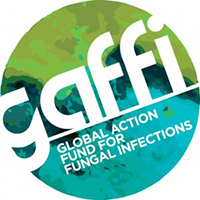Ruling by World Health Organization delights doctors
Today’s announcement that three drugs capable of reducing deaths in hundreds of thousands of people worldwide have been given essential medicines status.
This endorsement by the WHO of their essentiality is a key step in reducing mortality from fungal diseases.”
GENEVA, SWITZERLAND, April 4, 2017 /EINPresswire.com/ -- GAFFI (Global Action Fund for Fungal Infections) says today’s announcement that three drugs capable of reducing deaths in hundreds of thousands of people worldwide have been given essential medicines status is a Red Letter Day in the fight to reduce blindness and save lives.— Professor David Denning
GAFFI applied for itraconazole (capsules and oral suspension), voriconazole (capsules and intravenous solution) and natamycin 5% ophthalmic solution to be placed on the World Health Organization (WHO) Essential Medicine List (EML), in collaboration with colleagues from the Instituto de Salud Carlos III, International Foundation for Dermatology, London School of Hygiene of Tropical Medicine and The University of Manchester.
Globally, over 300 million people of all ages suffer from serious fungal infections every year resulting in over 1.6 million deaths. Like malaria with 438,000 deaths and tuberculosis with 1,800,000 deaths annually (2015), many deaths from fungal infection are avoidable. Most serious fungal infections are ‘hidden’, occurring as a consequence of other health problems such as asthma, AIDS, cancer, organ transplant and corticosteroid therapies. All require specialized testing for diagnosis, and delays or missed diagnosis often lead to death, serious chronic illness or blindness. The antifungal medicines itraconazole, voriconazole are essential to reduce deaths and illness, and natamycin to reduce blindness, and they are very inexpensive in most countries.
Professor David Denning from GAFFI and the University of Manchester says: “Recently GAFFI highlighted how many countries don’t have even the older antifungals, despite them being available for over 25 years in the West. This endorsement by the WHO of their essentiality is a key step in reducing mortality from fungal diseases. We are delighted that our campaign has WHO recognition. Our challenge now will be to make sure these drugs get to the people who desperately need them.”
The proposed indications for itraconazole capsules are chronic pulmonary aspergillosis, invasive aspergillosis, histoplasmosis (therapy, primary and secondary prophylaxis), sporotrichosis, paracoccidioidomycosis, infections caused by Talaromyces marneffei (penicilliosis) (therapy, primary and secondary prophylaxis) and chromoblastomycosis. These are all conditions in which fluconazole is ineffective. Itraconazole oral solution is preferred in late stage AIDS patients, leukaemia patients and children.
The proposed indications for voriconazole are invasive and chronic pulmonary aspergillosis, with intravenous therapy preferred initially in invasive disease.
The only indication for topical natamycin 5% in the eye is fungal (mycotic) keratitis and 3 randomised studies have shown it to be more efficacious than other topical medicines, given alone.
Current antifungals on the EML include only griseofulvin, fluconazole, amphotericin B and flucytosine (listed 2013), and some topical antifungals for skin. There is currently no EML listing for any preparation active for fungal keratitis. These applications are a key component of GAFFI’s effort to achieve it ’95-96 by 2025’ goal with respect to universal antifungal access.
Notes for Editors
GAFFI is a charitable foundation (NGO) focused on reducing deaths and illness caused by fungal disease.
Fungal diseases are neglected worldwide by public health authorities. GAFFI efforts are directed at:
1. Identifying and publicising gaps in diagnostics and treatments for fungal diseases
2. Consulting on how healthcare could be improved through facilitating training, encouraging companies to expand their markets and recommending improvements in infrastructure
3. Estimating the burden of serious fungal diseases, country by country. Over 68 country estimates are complete, and many of these are published
4. Developing, implementing and evaluating countrywide diagnostic programs - Guatemala (fungal infections in AIDS) the first
5. Influencing national and international agencies to ‘adopt’ fungal diseases alongside existing programs including TB, microbiology, AMR, NTDs and incorporation of key generic antifungals onto the WHO Essential Medicines List.
6. Focusing diagnostic improvements for GAFFI’s priority diseases.
GAFFI issued a 10-year Roadmap in 2015 calling for ‘95-95 by 2025’, summarized as 95 per cent of patients with serious fungal infections are diagnosed and treated.
Susan Osborne
Goodwork, Director of Communications
+44 (0)208 747 1488
email us here
GAFFI



